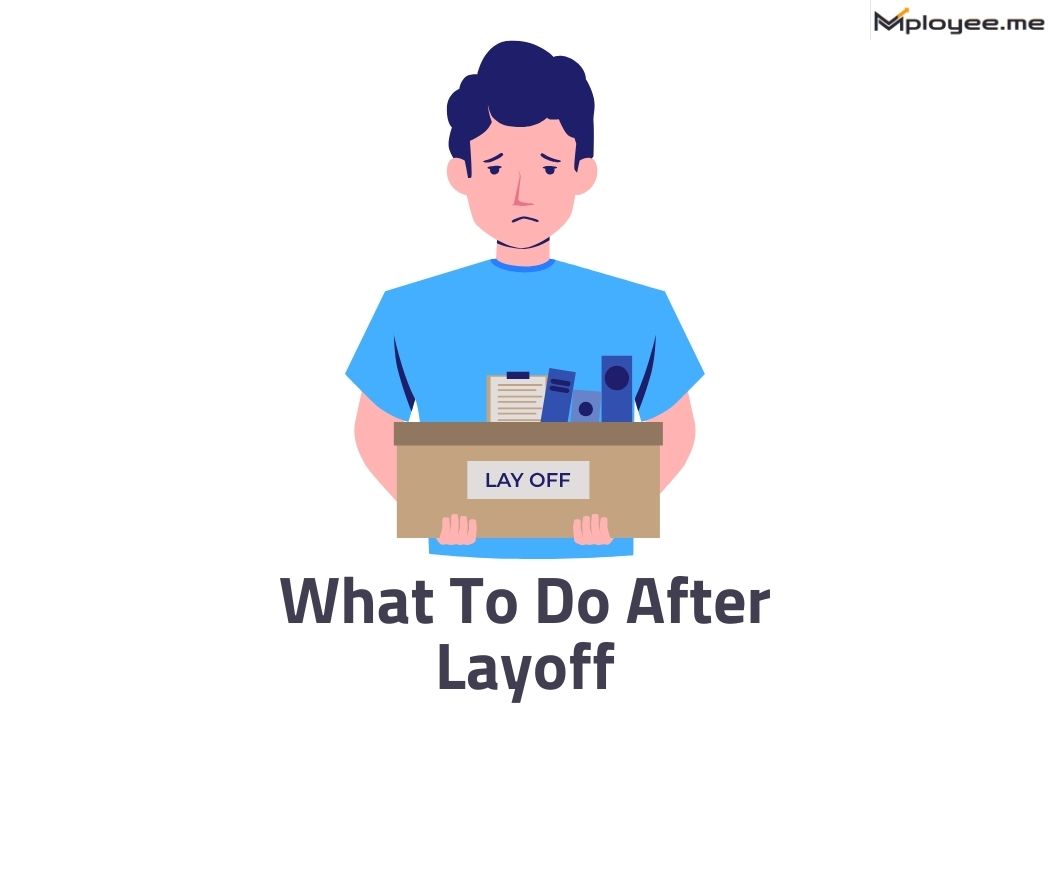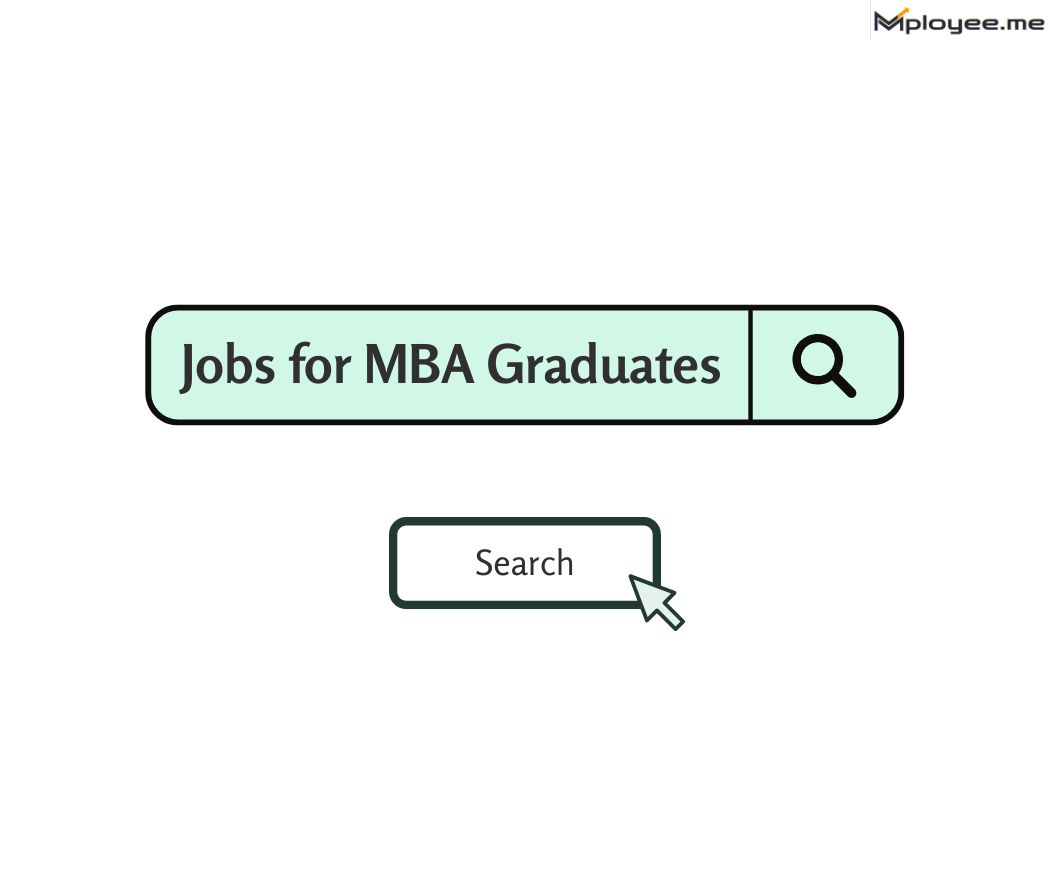
We'll cover
What To Do If You Get Laid Off: Top 12 Strategies
Written By Editorial Team

We'll cover:
1. Take a Moment to Process
You lost a job where you used to spend large part of your days for many months. It's ok to feel distressed, upset, frustrated, or even relieved depending on the circumstances. Take some time to think and understand what has happened. Do not make rash decisions. You can give yourself a day or two to relax and think of your layoff strategies.
2. Collect All Important Documents
In case of layoffs, the first step is to compile all your documents that are necessary. You will have a much easier transition and probably no problems in the future when you apply on a job matching platform.
- Get your employment contract and any changes made to it, as well as the offer letter.
- Ask for reference letters and also letters that state your experience from your previous employer.
- Obtain pay slips, tax documents (like Form 16) and bank statements for salary.
- Take records of any bonuses, stock options, or retirement contributions that you have made.
- Make duplicates of any certifications, training, or performance appraisals that you have received.
If your career turns out to be less than perfect, organizing these documents will still guarantee that you have proof of your experience, skills, and entitlements. In fact, they are necessary not only for job applications but also for benefits claims or questions from the next employer. So, safeguard both the digital and physical copies.
3. Review Your Final Pay and Benefits
Understanding your final pay and benefits package is very important after a layoff as it guarantees that you receive everything to which you are legally entitled.
If a severance package is given to you, be sure to read it carefully.
- Verify the amount of money you will get for vacation days that you did not use, overtime or bonuses.
- Ask for the confirmation of the health insurance or other benefits’ status and duration.
- Feel free to pose any questions you might have to the HR or payroll department.
- Save all the documents, including the last pay slip, severance agreement, and benefit statements.
Going through these details resolves the problem that can arise later and guarantees financial stability during the time you are looking for a new job. Plus, comprehending your rights gives you the power to negotiate or even claim benefits you did not even know about.
4. Update Your Resume
A strong and updated resume is your very first instrument to catch the eye after being laid off. It symbolizes your skills, successes, and willingness for new chances.
- Recent experience, projects, and tangible results should be given priority.
- Outdated or unimportant information that might clutter your resume should be eliminated.
- Tools like ResuScan can be used to check your resume against 40+ key factors.
- Your ATS score should be checked, and then you can optimize it for applicant tracking systems.
- Action verbs should be used, and wherever possible, the accomplishments should be quantified.
Updating your resume makes it current with industry standards and aids in the passing of ATS screenings. This indicates that a well-written resume will not only be noticed by recruiters but will also lead to quick interview appointments.
5. Refresh Your LinkedIn and Job Portals
Being in a non-working situation, you can still manage to make your online presence speak for you:
- Your LinkedIn profile should not only be filled with decaying projects, but also updated with the latest skills and experiences. Be real, don’t just write down responsibilities, but rather highlight what you have accomplished.
- Carry out an informal, business-like picture and a headline that is easy to understand so that people can have an idea of who you are from the picture.
- Transform your LinkedIn summary into a narrative about your professional expedition. Where you have been, what are your strengths, and the next role that is really exciting for you.
- Examining your profiles on the job sites (Naukri, Indeed, Monster, Job Match Pro) should be done and check that all the particulars are up-to-date. The out-of-date info is the quickest way to kill chances.
- Get job alerts set up so that you receive information about new positions directly to your email. It is a time-saver and also helps you stay concentrated on the right vacancies.
- Interact on LinkedIn. Make a helpful post, give your opinion on the updates, or give somebody a round of applause. It makes you visible and proves that you are active without being noisy.
If you constantly have your profiles updated, recruiters will see you as a serious, professional, and those who are ready to take on a new opportunity. It is surprising, but even minor and continuous updates can greatly enhance the chance of being seen.
6. Reach Out to Your Network
Networking is perhaps one of the best job search strategies. Inform close contacts that you are considering new opportunities. Do not mean you have to tell the whole world you have been laid off. Instead, personally contact close friends, old colleagues, or mentors. A majority of jobs are obtained through referrals before they ever hit the Internet job boards. Networking can bring about doors that might not otherwise appear on job boards.
7. Upskill or Reskill
A layoff can also be your chance to invest in yourself. By doing online courses, certification, or workshops you can enhance your skills. It increases your knowledge within your existing area of work or if you want to enter into a new field, doing courses is a great way to start, acquiring something new can enhance your confidence and marketability while keeping up with the times. This is particularly helpful if you lost a job in a dying industry and wish to shift to one that is expanding.
8. Start Applying Smartly
After a layoff, it is a must to focus on quality rather than quantity in a job search to be successful.
- Do not apply in bulk for every available job.
- Find the positions that fit your skills, experience, and career aspirations.
- Job Match Pro is one of the tools you can use to discover appropriate openings on different platforms.
- Choose applications where you fulfill most of the requirements.
- Personalize cover letters to showcase related skills and accomplishments.
Targeted applications are not only time-saving and response-rate-improving but also ensure that you put your efforts into the most significant opportunities. A well-thought-out plan can also lessen the frustration and keep your spirits up during your job search.
9. Tailor Your Resume for Each Role
The customization of the resume for every job has to be done so that the ATS scans are passed and the recruiters get impressed.
- Use the job description to find out the key skills and responsibilities.
- Resume Keywords by mployee.me is one of the tools that can be used to point out the keywords that are most relevant.
- Make your resume content compatible with ATS requirements without making it look like you are trying to include irrelevant terms.
- Exhibit the achievements that are directly in line with the job demands.
- Get rid of the information that is not related to the job and keep the resume short and on point.
Tailored resumes not only signify the detail-oriented approach but also appreciate the role and thus, increase the chances of being selected for interviews. In highly competitive job markets, it is especially important to have ATS-friendly resumes.
10. Make a Powerful Personal Pitch
Layoff is stressful, it's natural to have doubts and uncertainty about the future but because of this it's important for you to work on your physical and mental health. Exercise regularly, consume healthy meals, and engage in stress-reducing activities. Being healthy is never bad, it increases your concentration and energy level as you do your job search after layoff.
11. Concentrate on Physical and Mental Well-Being
Layoff is stressful, it's natural to have doubts and uncertainty about the future but because of this it's important for you to work on your physical and mental health. Exercise regularly, consume healthy meals, and engage in stress-reducing activities. Being healthy is never bad, it increases your concentration and energy level as you do your job search after layoff.
12. Remain Flexible with Opportunities
You might have a specific idea of your dream job, but remaining flexible to various possibilities can increase your chances of work. Be ready to consider jobs that are not ideal but can equip you with experience or lead you to something better. Flexibility remains one of the best layoff strategies since it broadens the scope of possibilities open to you.
13. Make Daily and Weekly Goals
Without organization, job searching can be an overwhelming task. So use job search tools like Job Match Pro which can enhance your job search and can give you job results from various major platforms like Naukri, Linkedin, and Foundit. It will keep you energized and play a big part in your job search after layoff. Small progress accumulates over the long run and gets you closer to your next job.
- Take a Moment to Process
- Go Over Your Finances
- Know Your Severance Package
- Get Your Resume and LinkedIn Ready
- Reach Out to Your Network
- Upskill or Reskill
- Look out for Freelance or Contract Work
- Be Organized with Applications
- Make a Powerful Personal Pitch
- Concentrate on Physical and Mental Well-being
- Remain Flexible with Opportunities
- Make Daily and Weekly Goals
How to Handle Layoff Interview Questions
It's natural to have fear of answering questions about layoff in interviews. You just have to make sure to tell the truth and be concise. You can say something like, "The company had a restructuring, and my position was affected. I am now excited to transfer my abilities to a new team". Keep in mind not to speak bad about your previous company.
These are some tried and tested tips to answer these questions confidently:
- Keep it brief and simple: Reply in one or two sentences.
- Be positive: You only lost a job, it’s nothing out of the world. It happens with everyone.
- Practice your response: Rehearse so that you sound natural and confident.
- Focus on your strengths: Change the conversation back to your results, projects, or skills, how you used those and what you learned.
- Demonstrate eagerness: Highlight that you are enthusiastic and ready for a new challenge.
- Bypass blame: Do not speak bad about your previous company or bosses. Be professional.
- Connect to the job: Close your response by highlighting how your experience aligns with the position for which you are being interviewed.
Cleverly switch the conversation rapidly to your skills, experience, and passion for the job to which you are applying.
More Tips to Make Your Response Stronger
Here are more tips to make your response stronger:
- Use numbers if you can: If your previous job developed measurable outcomes, state them briefly to transition to impact.
- Demonstrate resilience: Describe how the layoff provided time for you to enhance your skills, pursue a course, or get new certifications.
- Maintain confident body language: Smile, look at the interviewer, and sit up straight while answering.
- Rehearse with mock interviews: Practice role-playing with a friend or coach to feel confident prior to the actual interview.
- Prepare a follow-up: Once you have explained your layoff, shift into a strong point such as, "That experience provided me with time to earn a data engineering certification, which I am excited to implement in this position."
Key Takeaways
A layoff must not be considered a negative event rather a passing phase that has several lessons hidden in it.
- Just relax and take your time to digest the news about the layoff.
- Make a list and sort out all documents related to employment and finance that you will need.
- Look into your final payment, severance, and benefits in detail.
- Rewrite and make your resume ready for ATS and recruiters.
- Moreover, keep your profile updated on LinkedIn as well as on the job portals, every now and then
- Keep in touch with your connections and do not hesitate to ask for referrals when looking for job openings.
It is about the right skills that one acquires and the mistake of applying for jobs that one is not qualified for. However, if one is to set aside their requirements as well as their skills, reskilling and job application can be applied to any situation easily.
Can I say that I was laid off ?
Yes, you can say you were laid off. Make your explanation brief and state what you did in the position. Then steer the conversation toward your abilities and what you can offer the new position.
Am I fired or laid off ?
Is it preferable to use laid off or terminated ?
How do you professionally ascribe to being laid off ?
How do I say professionally that I was fired from employment ?
What to ask HR when you are laid off ?
How to get back after being fired ?
What are the psychological effects of being laid off ?
How do businesses determine who to layoff ?

Got Your Answer ?
Learn this in 30 Seconds 👇
Career Blogs
Our career blog is your go-to resource for insightful advice, practical tips, and the latest trends in the job market.

Office Address: Room No 305, IIT ROPAR-TBIF, Top Floor (East Wing), M.Visvesvaraya, Rupnagar PB, 140001
- Free Online Resume Review
- Check Resume Score
- Job Description Keyword Finder
- Resume Shortlisting Software
- Resume Scanner for Jobs
- Find jobs that match with resume
- Job matching platform
- Resume job matching
- Job suggestion
- Best sites to find jobs
- Free ats resume scanner
- Auto apply for job
- Full Time Jobs
- I Need a Job
- Information Technology Jobs
Can't Find Something? Get in Touch.
©2026 Padhakku Peek A Book Pvt Ltd (Mployee.me)






